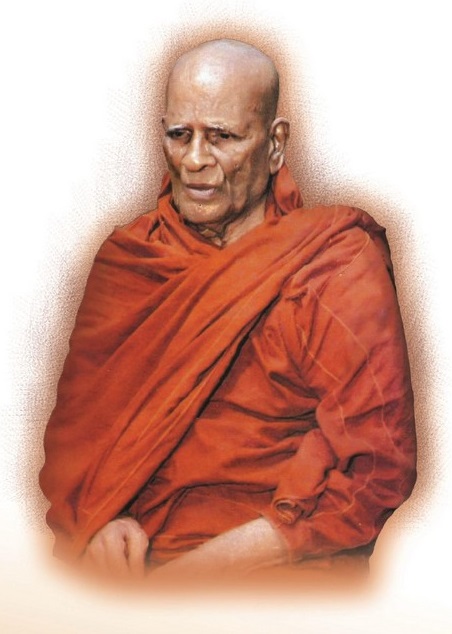Most Venerable Ñāṇārāma thero was a genuine yogāvacara in its utmost depth of
the meaning. When writing this guide, Venerable thero combined his
deep knowledge of Dhamma as well as his piercing intuition forged by
meditation, and consequently (this book) has become a valuable
handbook for those who follow the path of Dhamma.
It is our goal to share Most Ven Ñāṇārāma thero’s very insightful
experiences and his piercing intuition with readers who are not able to
access his original writings in Sinhala. While reading this guide, we
hope that the reader will gain familiarity with venerable maha thero’s
personal qualities of great humility, virtue, determination, directness,
hindsight and insight. We hope that the reader will experience a
personal encounter with him.

Yogāvacaropadesa –
Guidance for a meditative life
Namo tassa bhagavato arahato Sammāsambuddhassa
Homage to the Blessed one, Accomplished and Fully Enlightened
[1]. Yogi should frequently introspect the nature of his mind, as
subtle thoughts that are detrimental to yogic practice can arise
unknowingly.
[2]. Yogi should develop a keen self-awareness about defiled
thoughts as they arise in the mind incognito. Their hinderance can be
very detrimental to the progress of meditation; Just as the enemy in
disguise can be more dangerous than the enemy well-known.
[3]. Do not utter words that hurt others; nor write. Such acts occur
because the mind turns negative. One must very thoroughly remember
that it is a serious obstacle to yogic practice.
[4]. Do not be involved in others’ mischiefs and never use uncouth
language, as they have the power to bring oneself down and to
degenerate one’s mind.
[5]. Do not hurt anyone. Do not find any excuse to hurt your own
mind, nor to self-mortify.
[6]. One finds false comfort in scratching around a healing wound,
which is only going to prolong its healing. Similar is one’s attachments
to sensual desires (raga) and how one would torment his body and mind
as a result. It is only later that one realises its detrimental effects.
[7]. One must make concerted efforts to relinquish unskilful habits
and to thoughtfully cultivate skilful habits.
[8]. Steadfast persistence and energy (viriya) is a great aid for the
yogic practice. Yogi should make every opportunity to cultivate this
quality.
[9]. Yogi must use the four postures (sitting, standing, walking and
sleeping) to cultivate persistence and energy (viriya). He must patiently
apply his wisdom as an ankus (elephant goad) to guide the path.
[10]. Walking meditation is an extremely useful activity for the yogi.
Avoid wasting even a single moment occupying the mind with idle,
unskilful thoughts.
[11]. It is said that “the yogi never sleeps”. Which means that the
experienced yogi would not break his vipassana practice with sleep. For
he goes to sleep while keeping to an object of mindfulness and he wakes
up without a break with the object of mindfulness.
[12]. Sitting cross-legged (baddha pallaṅka) is the moststable posture
for a yogi. With consistent practice, sitting cross legged becomes
comfortable, and it will help overcome posture-related discomforts.
[13]. Yogi must be careful with food. Unsuitable food can cause great
discomfort as well as degeneration of one’s body and mind.
[14]. There are places and circumstances that help cultivating one-
pointedness of the mind (samādhi) easily; also there are places that
deteriorate one’s samādhi. The yogi should therefore carefully
distinguish between the two.
Continued …